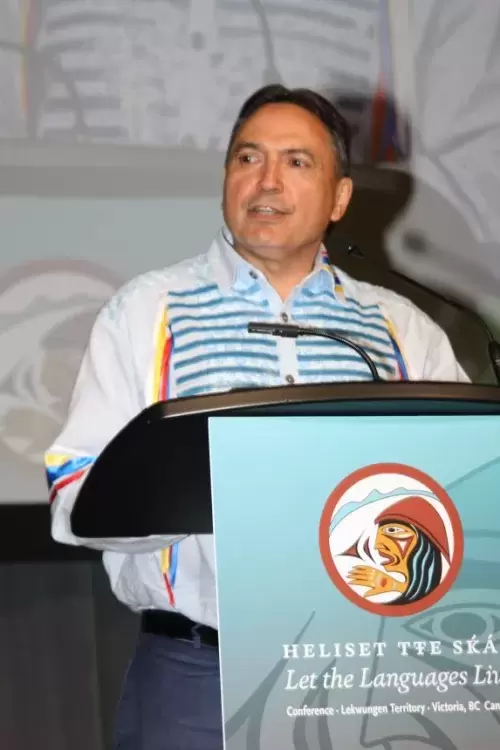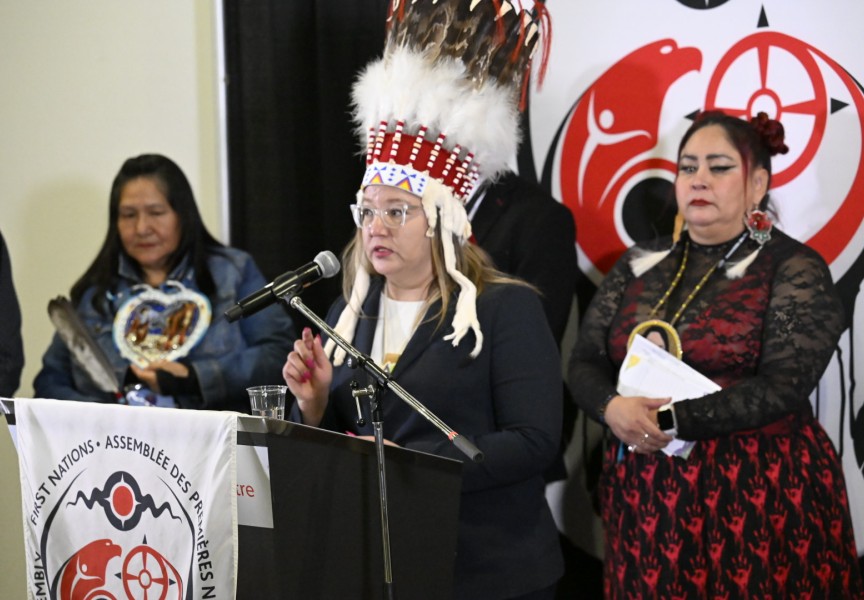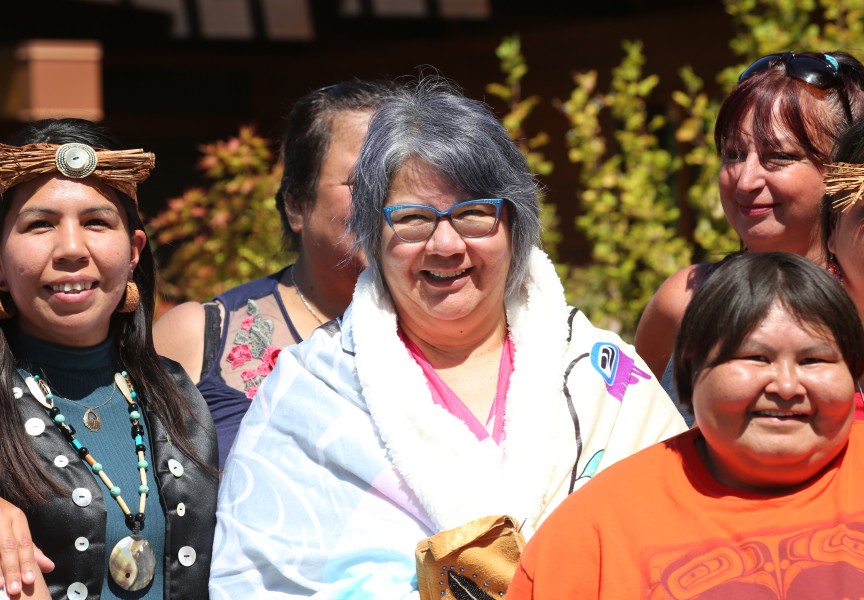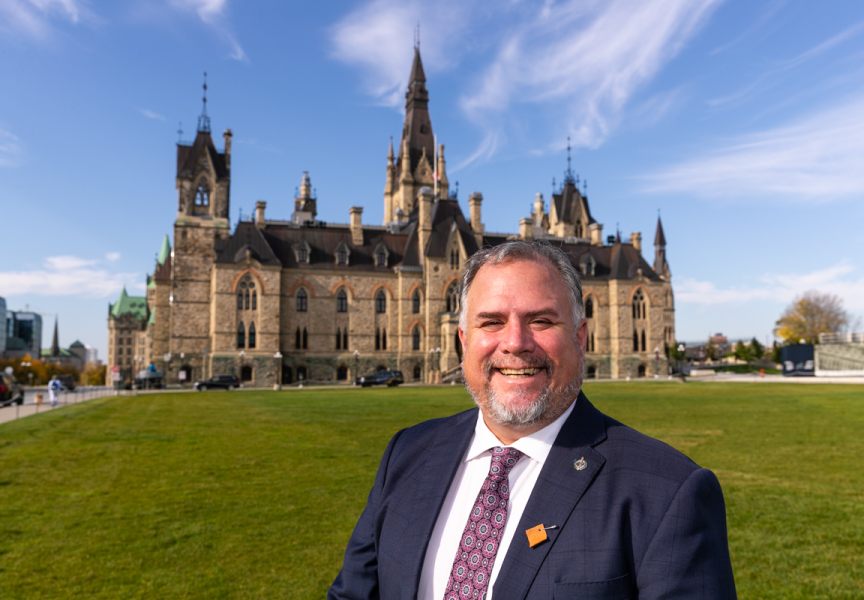The Heliset TTE SKAL – Let the Languages Live Indigenous Languages Conference opened to the great news that Bill C-91, the Indigenous Languages bill, received Royal Assent on June 21 – most fittingly on National Indigenous Peoples Day.
Bill C-91states, in part, that the Government of Canada recognizes that the rights of Indigenous peoples, affirmed by section 35 of the Constitution Act, 1982, including rights related to Indigenous languages.
In his keynote address at the conference, AFN National Chief Perry Bellegarde talked about the efforts of the AFN and other Indigenous leaders to get the bill passed, which would allow language champions to access resources and build on their work saving critically endangered dialects.
Language, Bellegarde stated, is fundamental to our survival as Indigenous peoples.
“The residential school system in Canada was a form of genocide that tried to eradicate all of our languages; we were taught everything about being First Nations was no good,” said Bellegarde. He went to say that today’s generations are still feeling the intergenerational trauma from this institutionalisation.
While there are no more residential schools, Indigenous children are still overrepresented in Canada’s child welfare system; something that further alienates young First Nations children from their families, their languages and their culture.
Bellegarde suggested that Indigenous people need to work together to rebuild culture and languages.
“The government invested a lot of resources and time to eradicate our languages,” he said. “Now they must invest the time and resources to correct it.”
Bellegarde noted that language revitalization is a priority for the AFN and they have worked hard on the legislation.
With a nod of her head, Canada’s Governor General gave Royal Assent to the Bill C-91 in the House of Commons on National Indigenous Peoples Day.
“What this means is statutory funding will be in place to ensure the resources are there to bring back fluency,” said Bellegarde.
This funding will be used by communities in a variety of ways, including the mentor/apprenticeship language programs, immersion and other models of transferring fluency to non-speakers.
Bellegarde noted that British Columbia has the fastest growing language programs and resource development in Canada. He acknowledged MLA and Minister of Indigenous Relations and Reconciliation, Scott Fraser, and BC Premier John Horgan for making language preservation a priority by contributing $50 million to language revitalization.
Bellegarde said that Canada’s First Nations are the fastest growing segment of the population and by investing in language preservation, the province is investing in human capitol.
“If you are successful in language education you are successful in life,” said Bellegarde.
Up until recently, First Nations had very few resources to work on languages. Bellegarde thanked the elders and language champions that struggled over the past decade or more to keep building on fluency.
“We thank you and you will see the fruits of your labour soon,” he vowed.
Bill C-91 requires the establishment of the Office of the Commissioner of Indigenous Languages. The office’s mandate and powers will include supporting the efforts of Indigenous peoples to reclaim, revitalize, maintain and strengthen Indigenous languages.
The office will be required to submit an annual report to the minister of Canadian Heritage on the use and vitality of Indigenous languages in Canada and the adequacy of funding provided by the Government of Canada for initiatives related to Indigenous languages.
Minister of Crown-Indigenous Relations Carolyn Bennett made an appearance at the conference to announce that her government has committed $300 million over five years to protect Indigenous languages in Canada. She stated that the partners will soon come together to determine how the funding will be used. She noted that it is important that funds get to the grassroots people doing things like immersion programs, which have proven to be successful.







